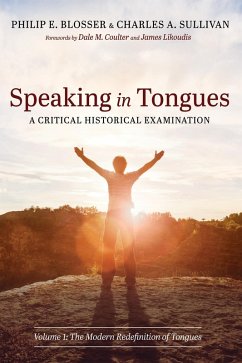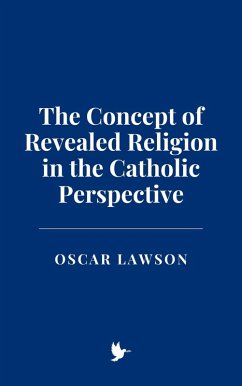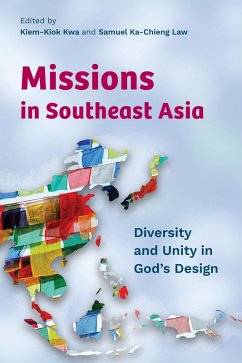
Speaking in Tongues: A Critical Historical Examination (eBook, ePUB)
Volume 1: The Modern Redefinition of Tongues

PAYBACK Punkte
13 °P sammeln!
In three carefully researched volumes, this ground-breaking study examines the gift of tongues through 2,000 years of church history. Starting in the present and working back in time, these volumes consider (1) the modern redefinition of "tongues" as a private prayer language; (2) the church's perennial understanding of "tongues" as ordinary human languages; and (3) the Corinthian "tongues," which, in light of Jewish liturgical tradition, turn out to have been a foreign liturgical language (Hebrew or Aramaic) requiring bilingual interpreters. In the first volume, the authors establish that mod...
In three carefully researched volumes, this ground-breaking study examines the gift of tongues through 2,000 years of church history. Starting in the present and working back in time, these volumes consider (1) the modern redefinition of "tongues" as a private prayer language; (2) the church's perennial understanding of "tongues" as ordinary human languages; and (3) the Corinthian "tongues," which, in light of Jewish liturgical tradition, turn out to have been a foreign liturgical language (Hebrew or Aramaic) requiring bilingual interpreters. In the first volume, the authors establish that modern glossolalia, far from being a supernatural gift enjoyed by certain believers since the time of Pentecost and undergoing a resurgence in modern times, has no precedent in church life prior to the nineteenth century. They discuss why German theologians, responding to the Irvingite revival, coined the term "glossolalia" in the 1830s; why Pentecostals between 1906-8 quietly began redefining "tongues" to mean a heavenly language unintelligible to human beings but pleasing to God, instead of foreign languages useful for evangelism; why Protestant cessationists believed miraculous tongues had ceased; and why interpolated idioms like "unknown tongues" in Protestant Bibles were aimed originally at Rome's use of Latin.
Dieser Download kann aus rechtlichen Gründen nur mit Rechnungsadresse in A, D ausgeliefert werden.













